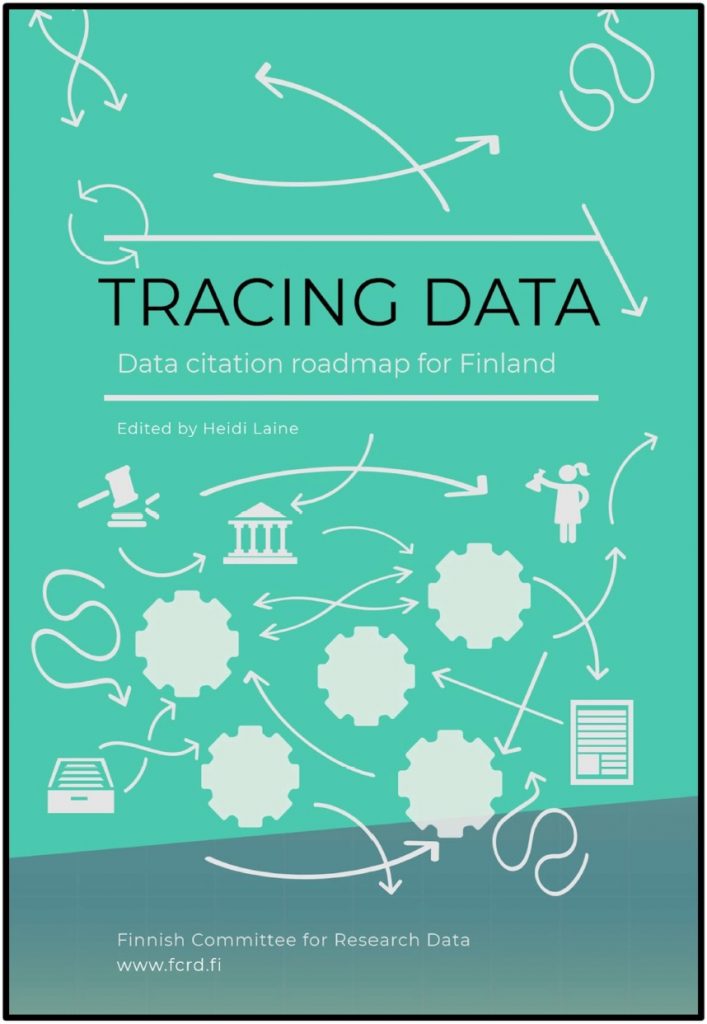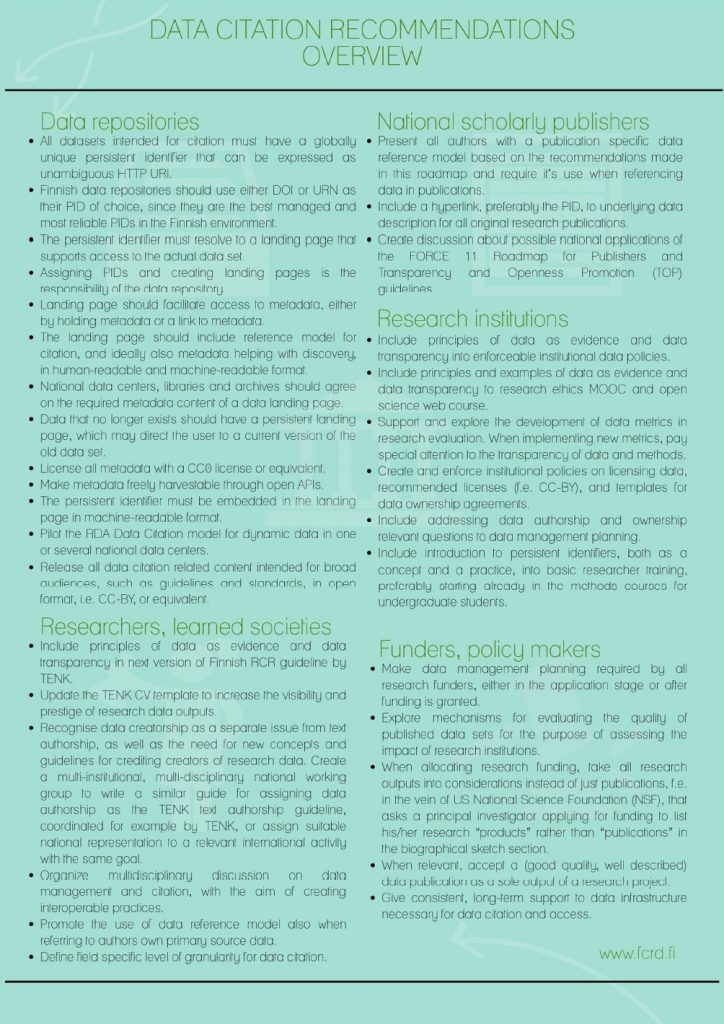Recently published data citation roadmap for Finland demonstrates how the data citation is closely related to a number of research data issues, such as research data management, scientific publishing, and the responsible conduct of research. This is the abstract of the original post (in Finnish).
The development of data citation practices may sound distant to many researchers and members of the scientific community, but it is in number of ways linked to the issue of research data. To see research data as essential research output alongside research publications is the key point.

The first recommendations on national level, Tracing Data – data citation roadmap for Finland, were published in April 2018. The roadmap consists of an evaluation of the current situation of the data citation practices and a description of the target state. Based on these descriptions, the paper presents the roadmap – ”recommendations on measures from the current situation to the target state” – and a citation model for data references. The roadmap’s recommendations are in line with the international FORCE11 principles.
”Although the roadmap opens up a very wide field of phenomena, the ’data citation’ in itself may sound small and rather specific. However, the roadmap is the concern of the entire field of science. Various actors should react on these recommendations,” says Susanna Nykyri, chief information specialist at Tampere University of Technology.
Nykyri, who worked at the Helsinki University Library until the end of 2017, was a member of the roadmap working group that included representatives from the University of Helsinki – researchers Heidi Laine (editor) and Ari Asmi (project director) –, the Aalto University, the Finnish Social Science Data Archive, the National Library, and the Finnish Committee for Research Data (FCRD). The project was launched by the Ministry of Education and Culture (the Open Science and Research Initiative 2014–2017).
The incentive system does not support data sharing
The basic idea of the roadmap is simple: by developing data citation practices, researchers and research groups who publish research data will increase their citations and get recognition for their work. By better citation practices the data is easier to find, which makes it more usable – and this again improves the visibility of the research.
At the moment, the incentive system doesn’t support the research data sharing, nor better data citation practices.
”When appropriate, it would be good to consider also the research data as a relevant research output, not only the research publications, as is customary. It would be good if the researcher could tell already during the funding application phase, that the research will generate data that will be opened for further use”, Nykyri says.

The roadmap tries to fix the bottlenecks in the data publishing. To digest the roadmap recommendations has been made easy for potential recipients. Key players (data citation stakeholders) are clearly defined: research institutions, data repositories, academic publishers, researchers, learned societies, individual researchers, funders and policy makers. And the stakeholders’ responsibilities are easy to pick up as well – the core points have been summarized on one page.
The contextualisation of the data citation practices is well described in the roadmap. Data citation practices are seen as part of the responsible conduct of research, such as transparency. The aspect of open science has also been taken into account.
”Without researcher’s contribution, nothing happens”
Nykyri emphasizes the importance of the library support services and the infrastructure built by universities, but the role of the researcher is pivotal.
”Even the best support services cannot replace the researcher. Without researcher’s contribution to the data citation practices, nothing happens. I hope that the roadmap will broaden out the researcher’s perspective on what this is all about. And I hope that the researcher will be able to focus on key issues such as the quality of data management and the importance of metadata and persistent identifiers,” says Nykyri.
The next step is to raise the discussion of the roadmap issues, and to notice the importance of data citation in the universities’ strategic plans.
”I hope that the roadmap is taken into account when the data policies and the plans of action are drawn up. There are already some policy papers in the universities but what we particularly need is action programs to which organisations are committed. I believe that the plans of action will begin to appear very quickly,” Nykyri estimates.
